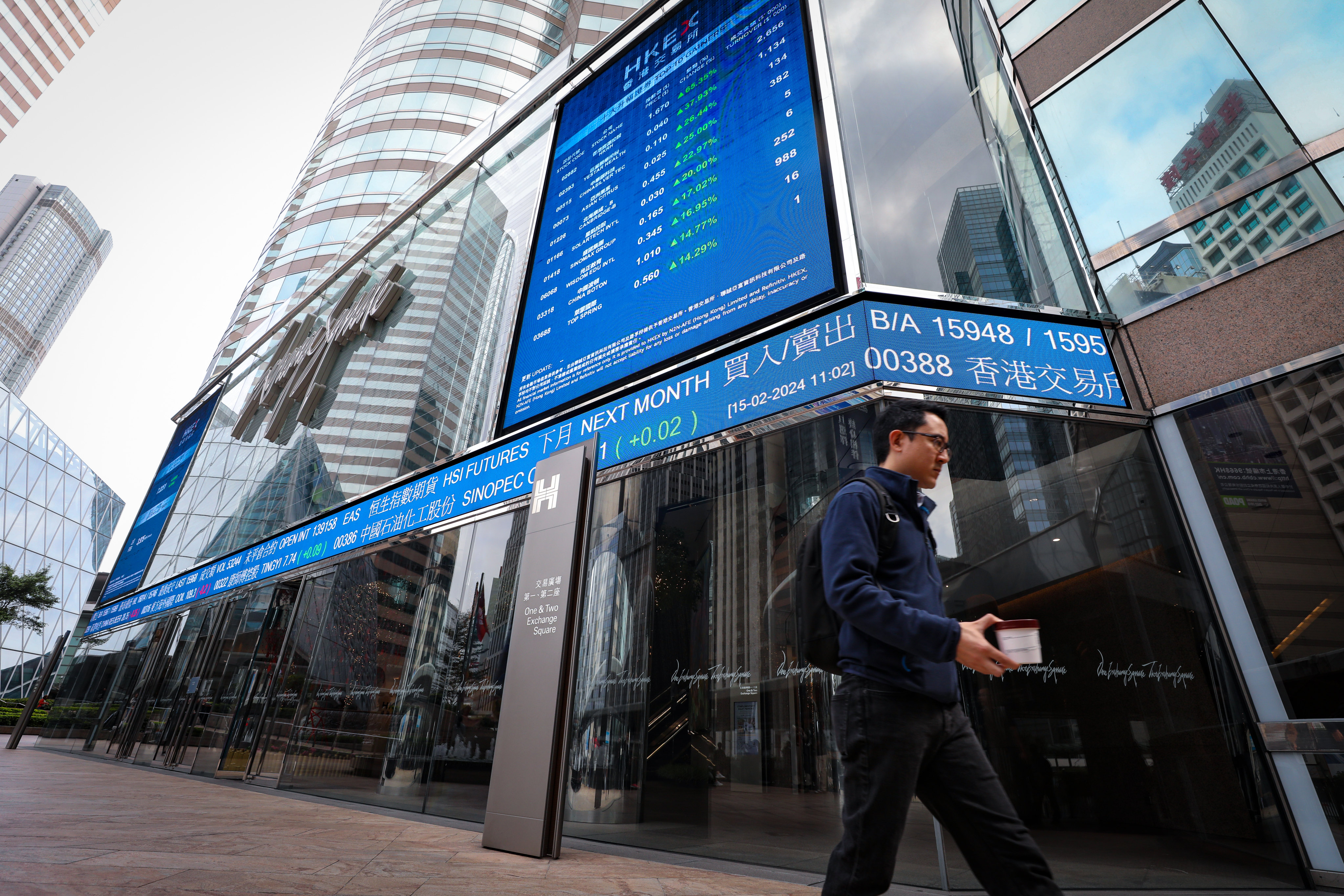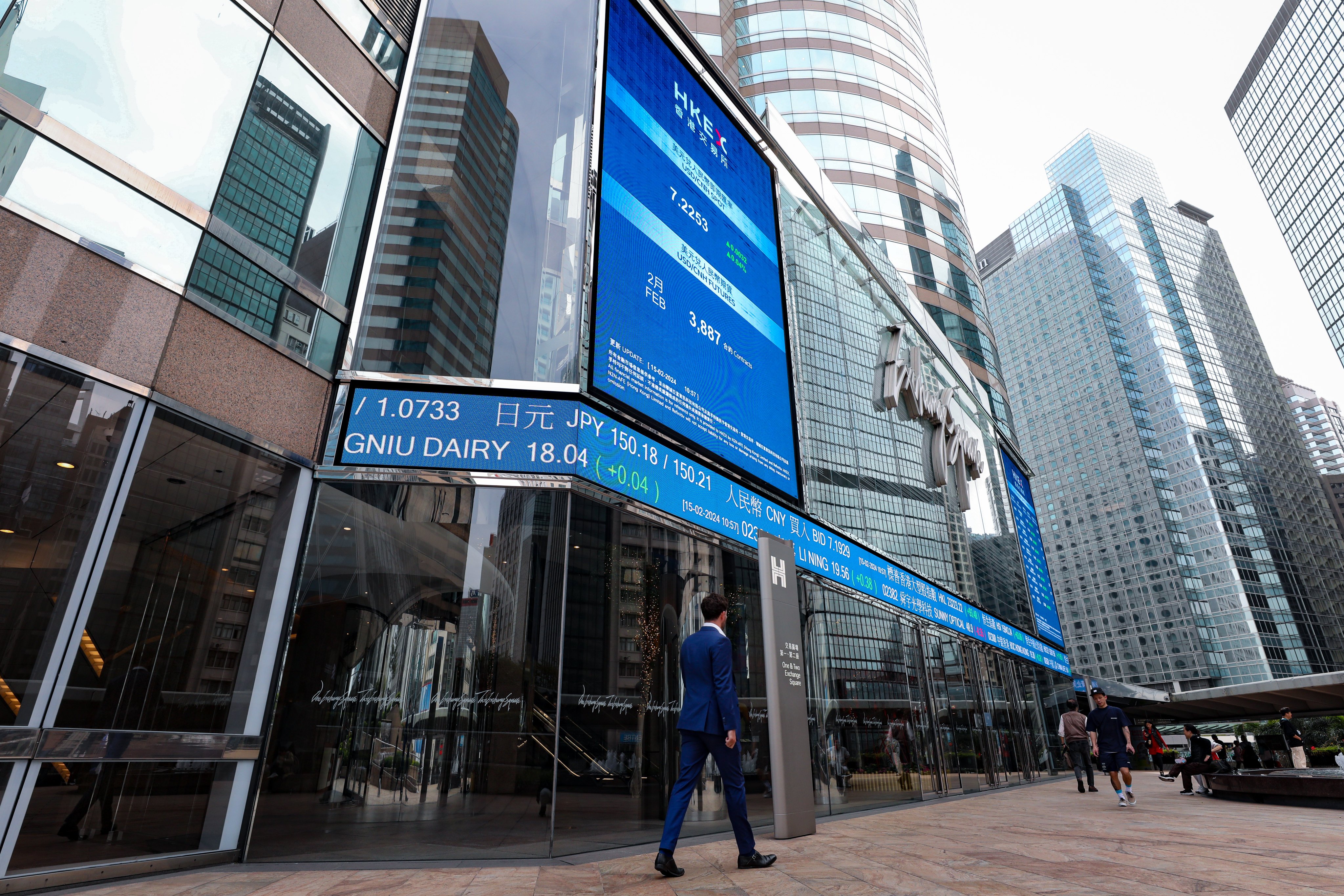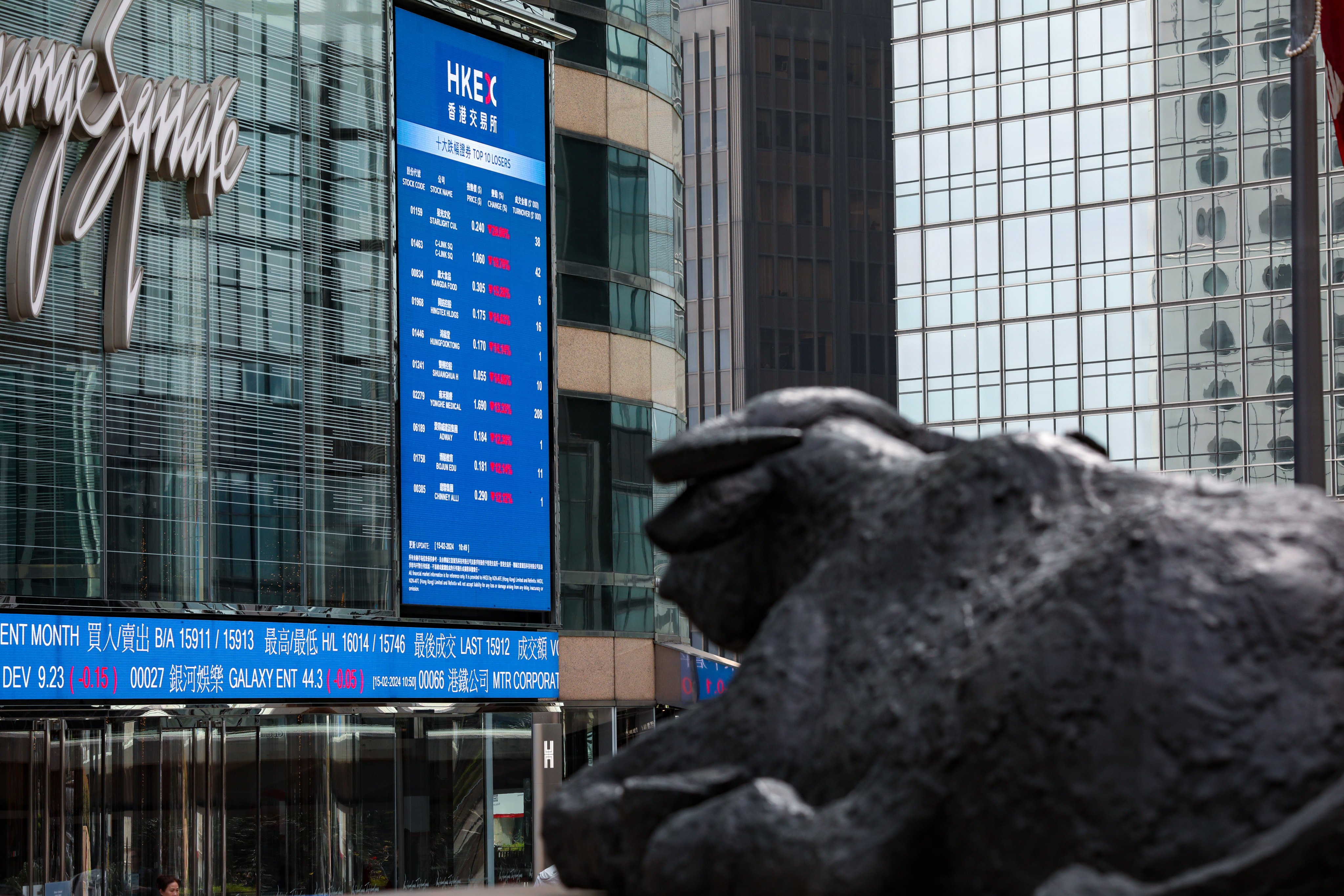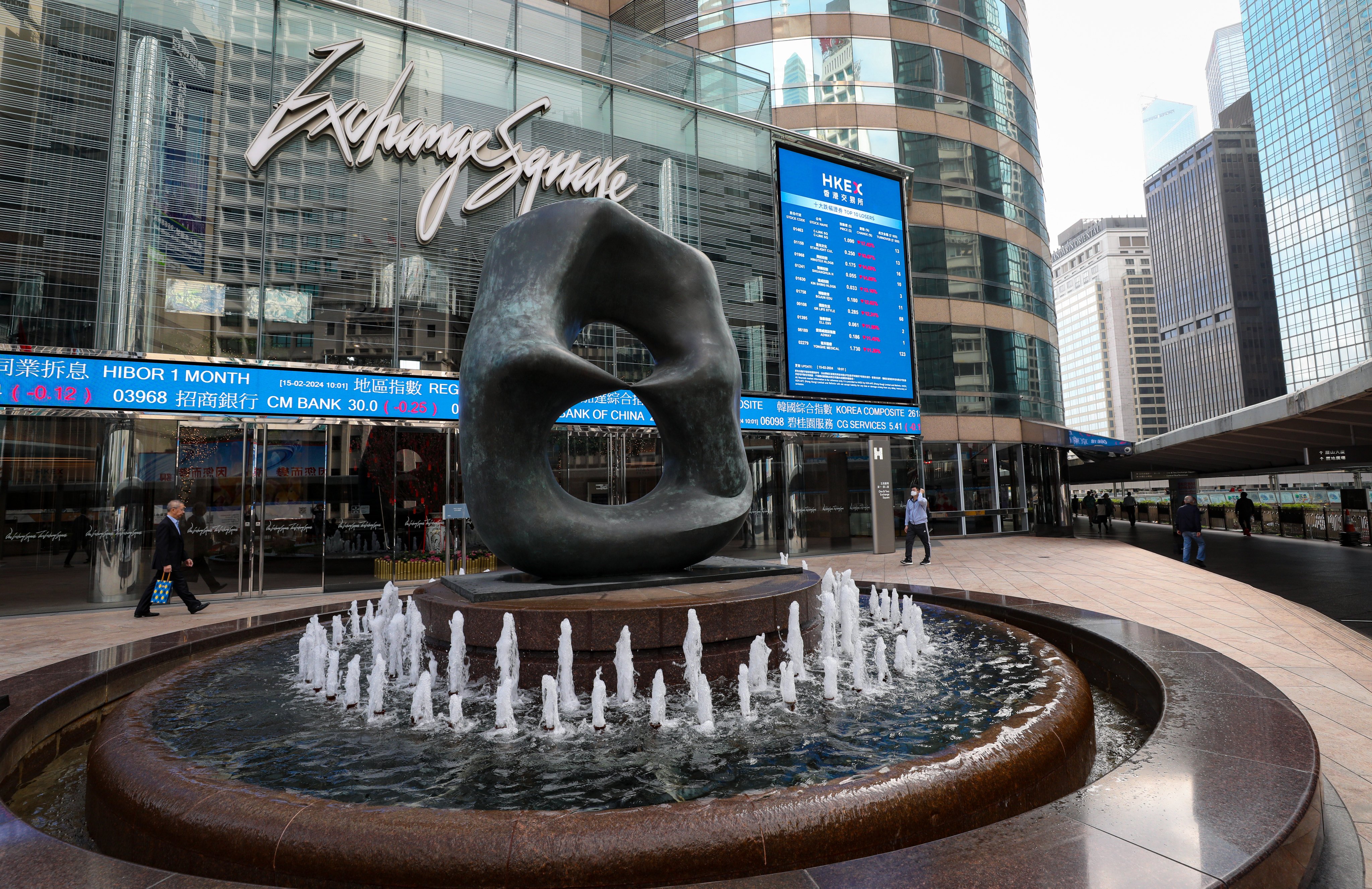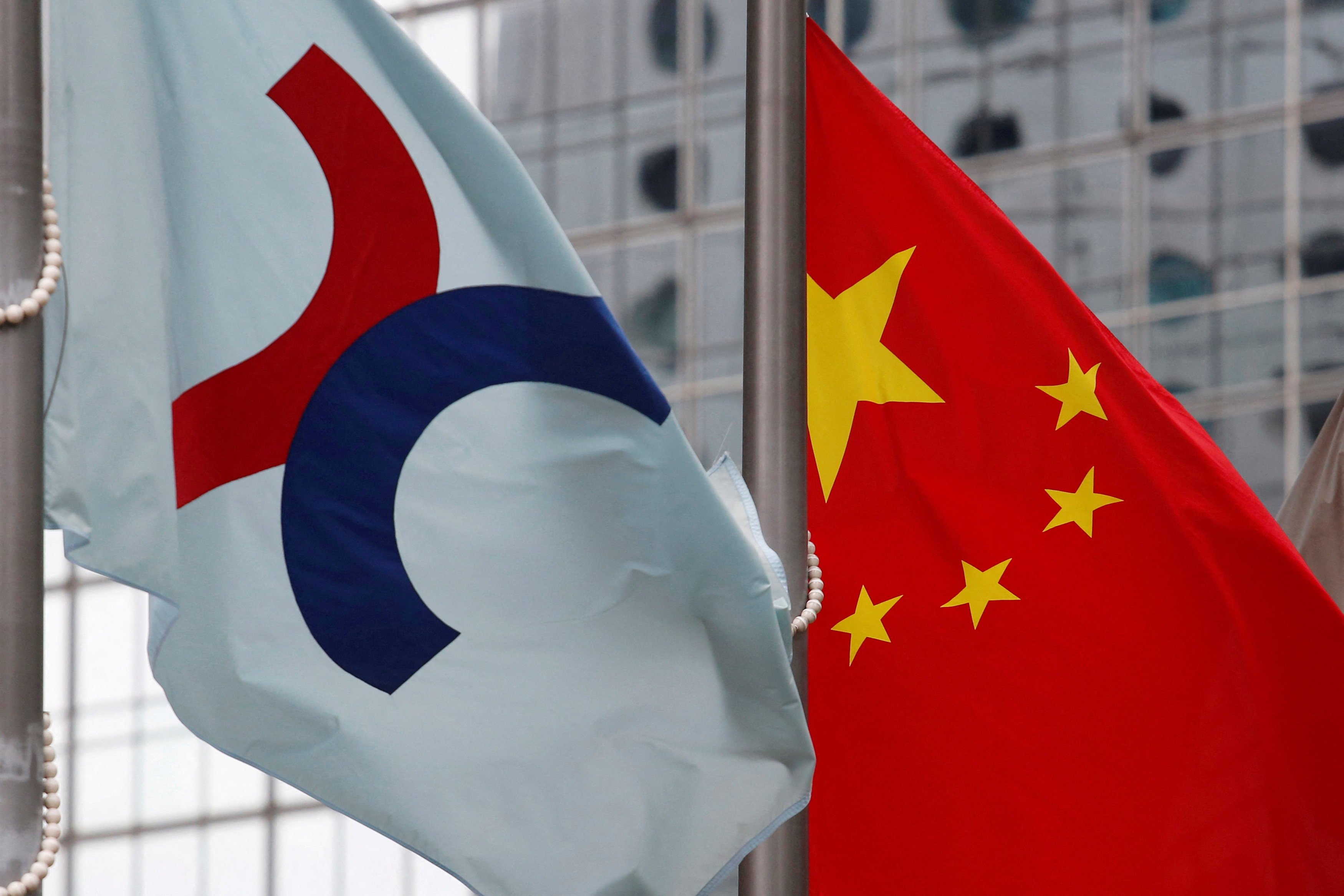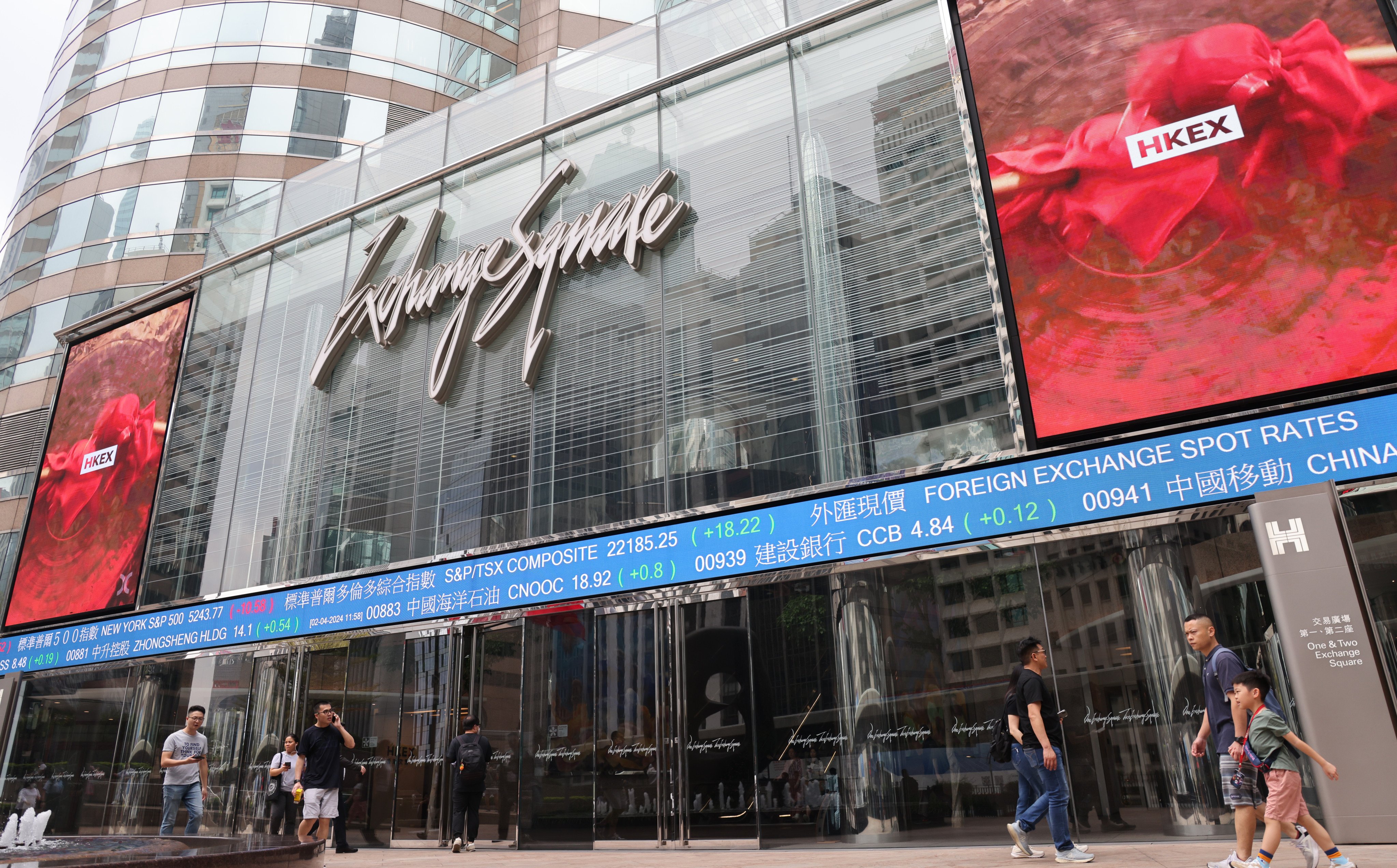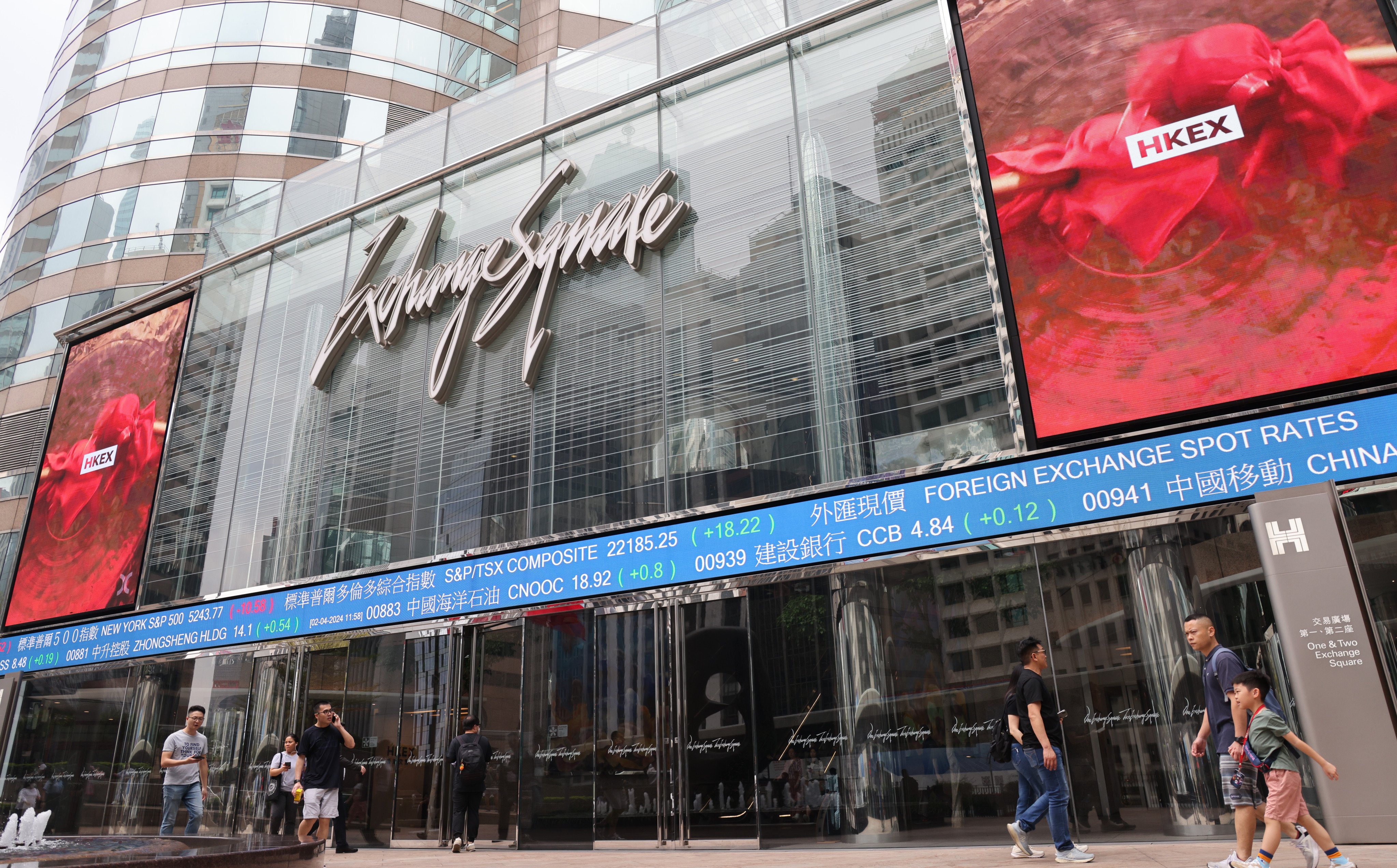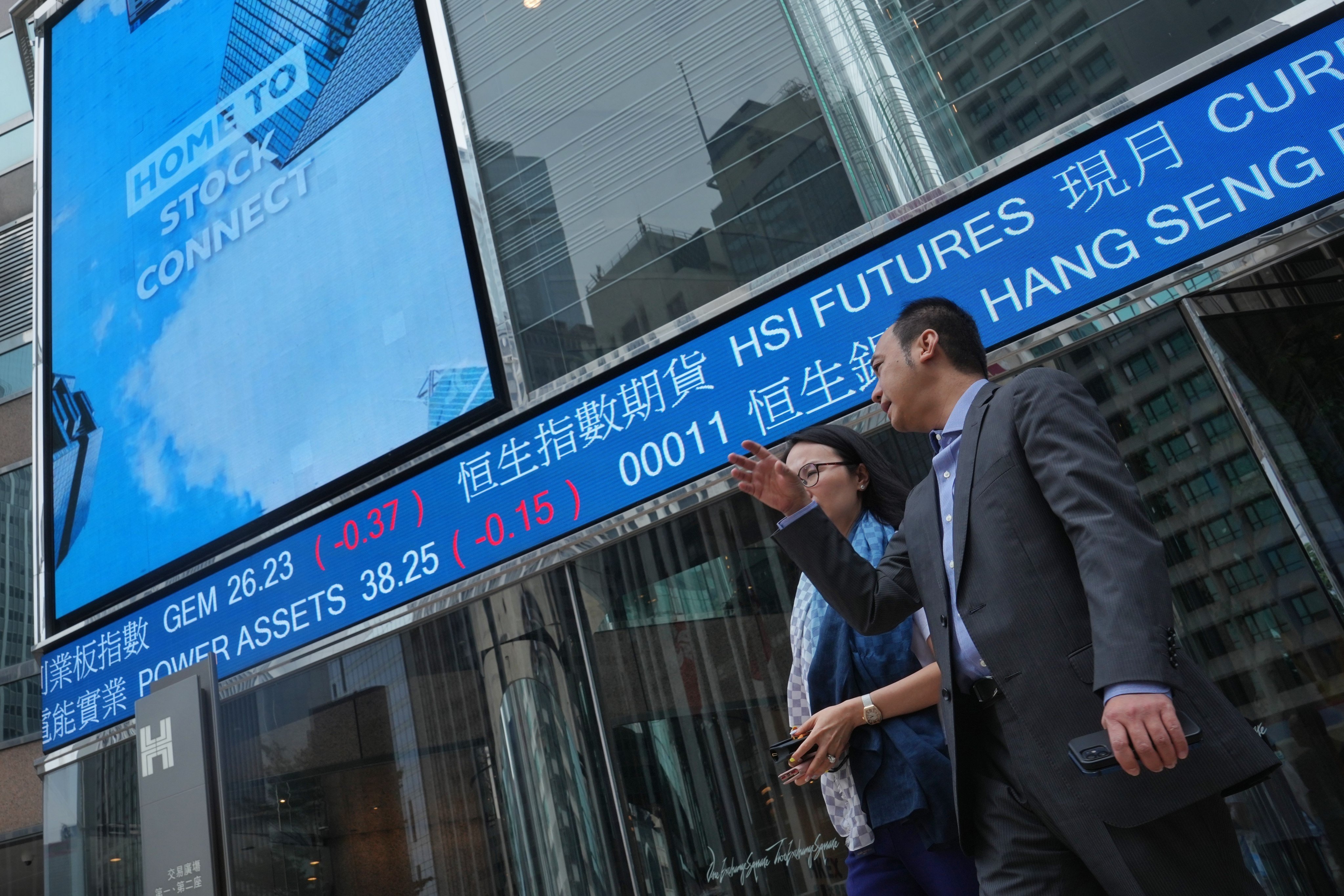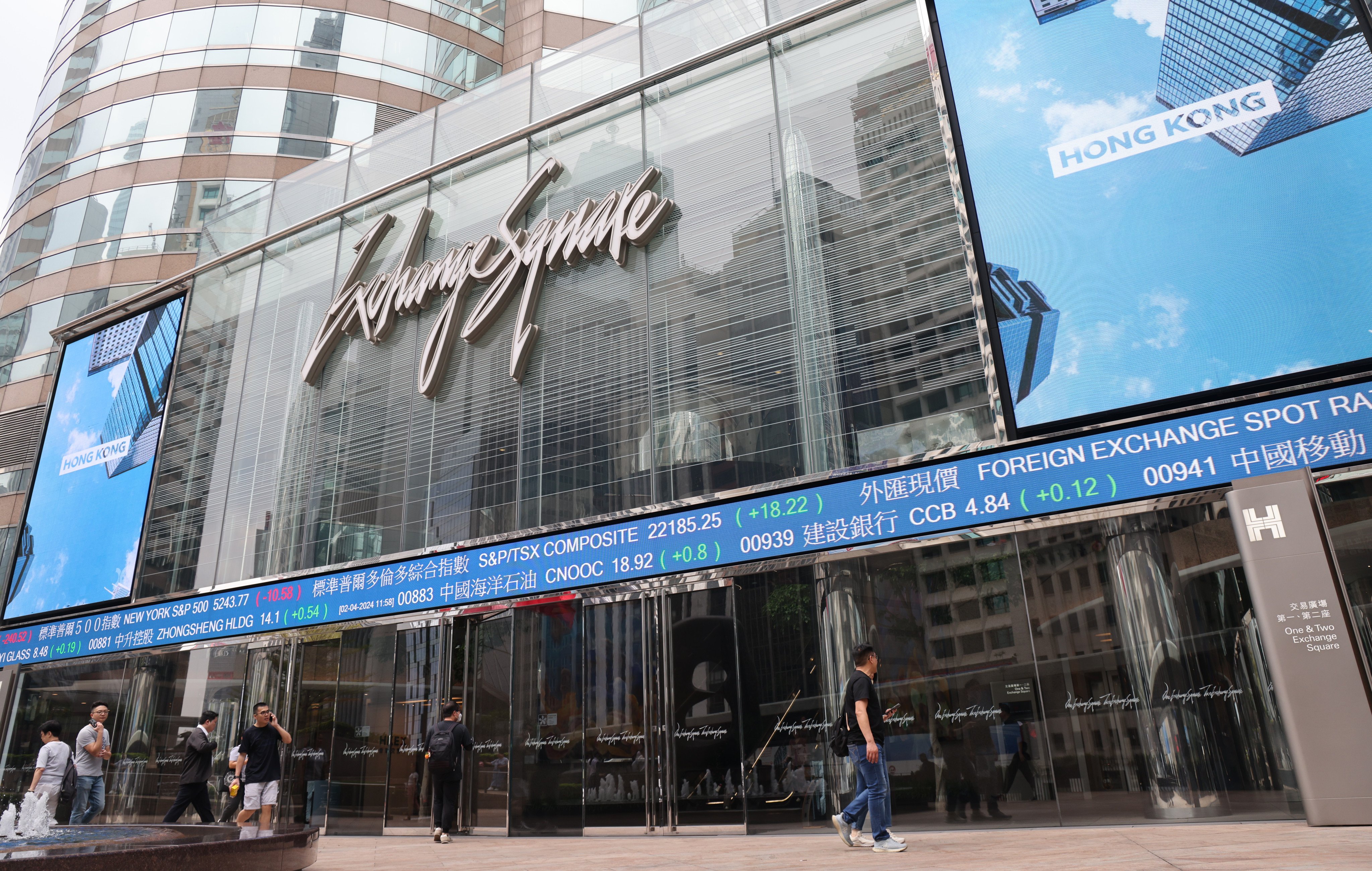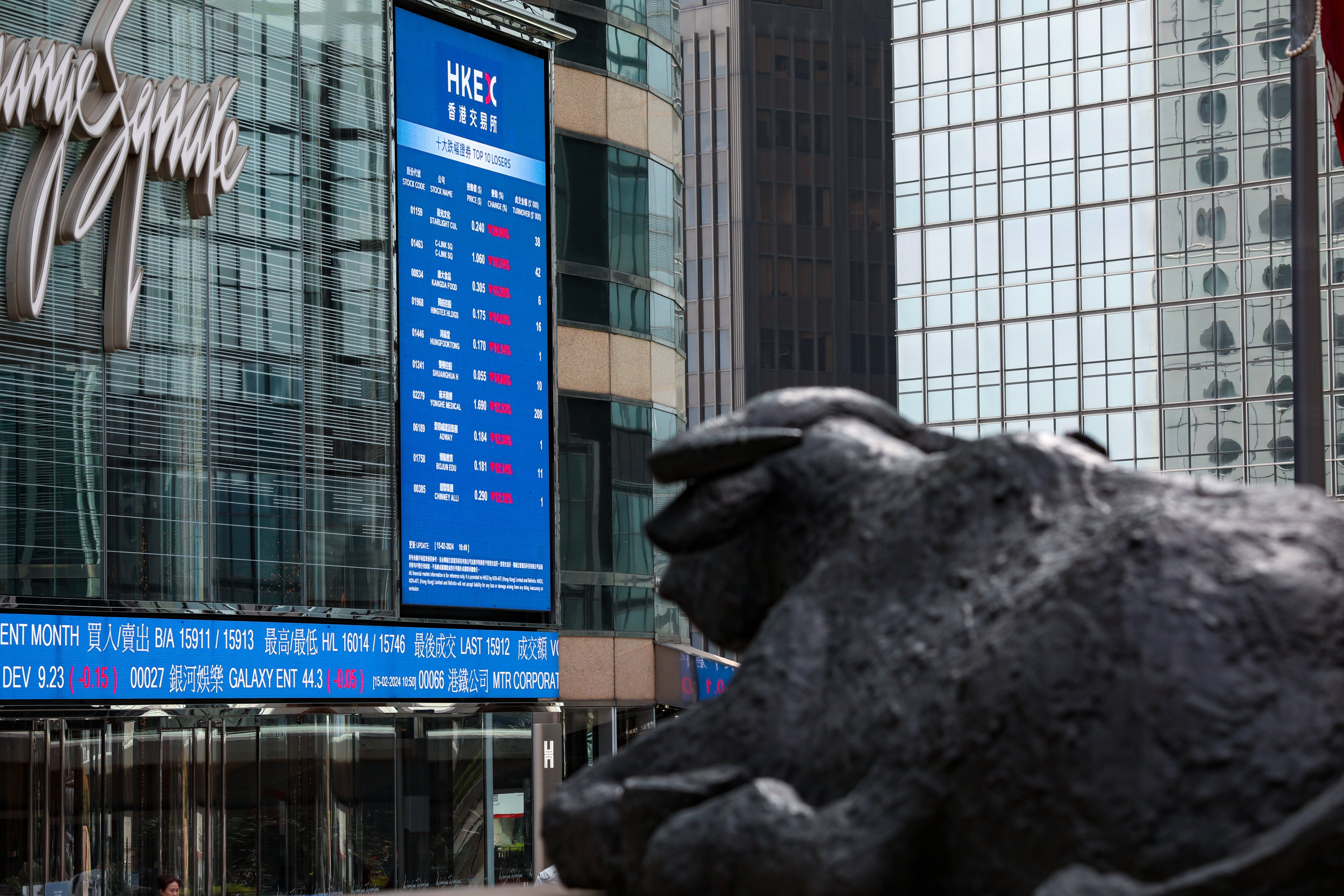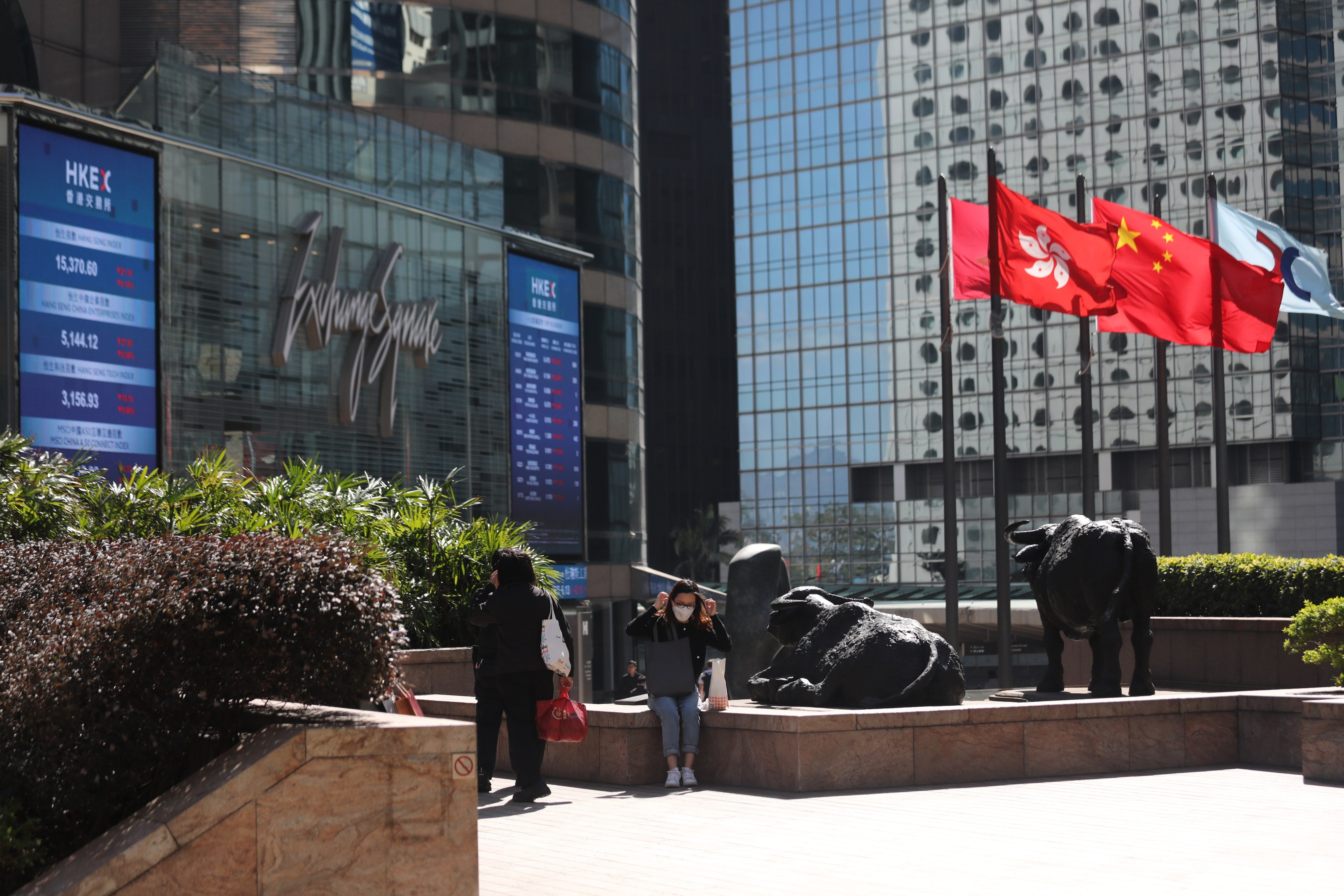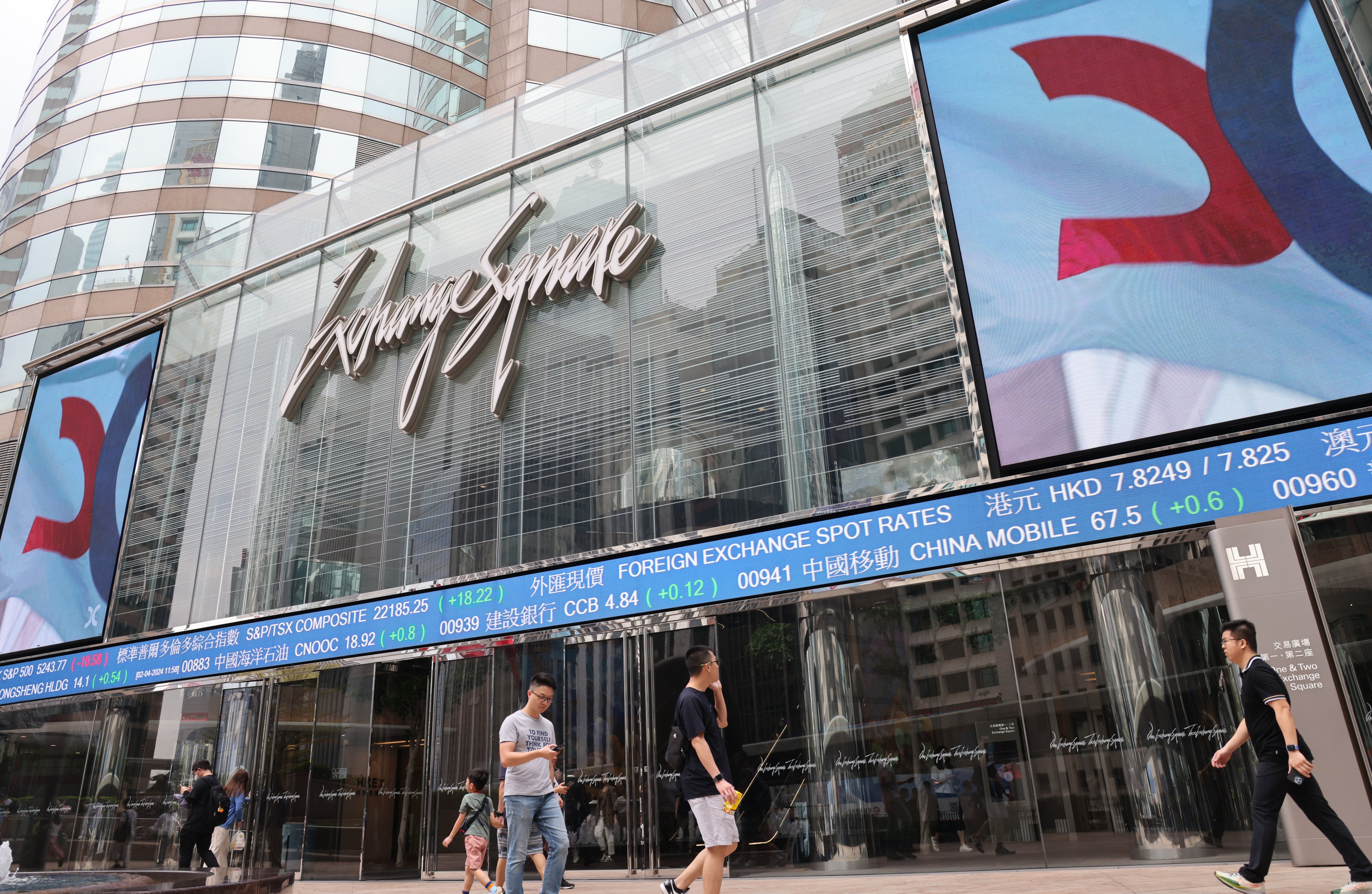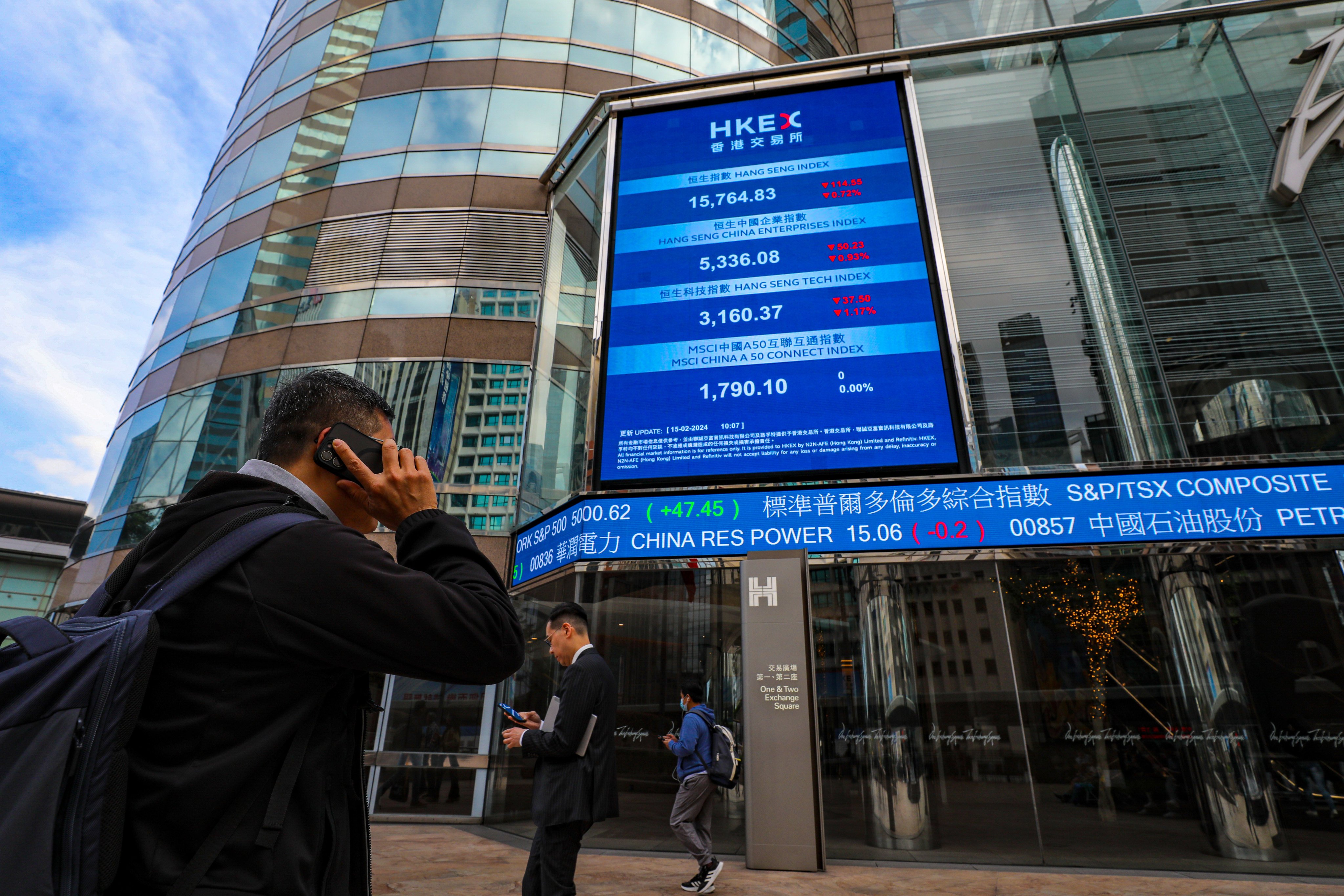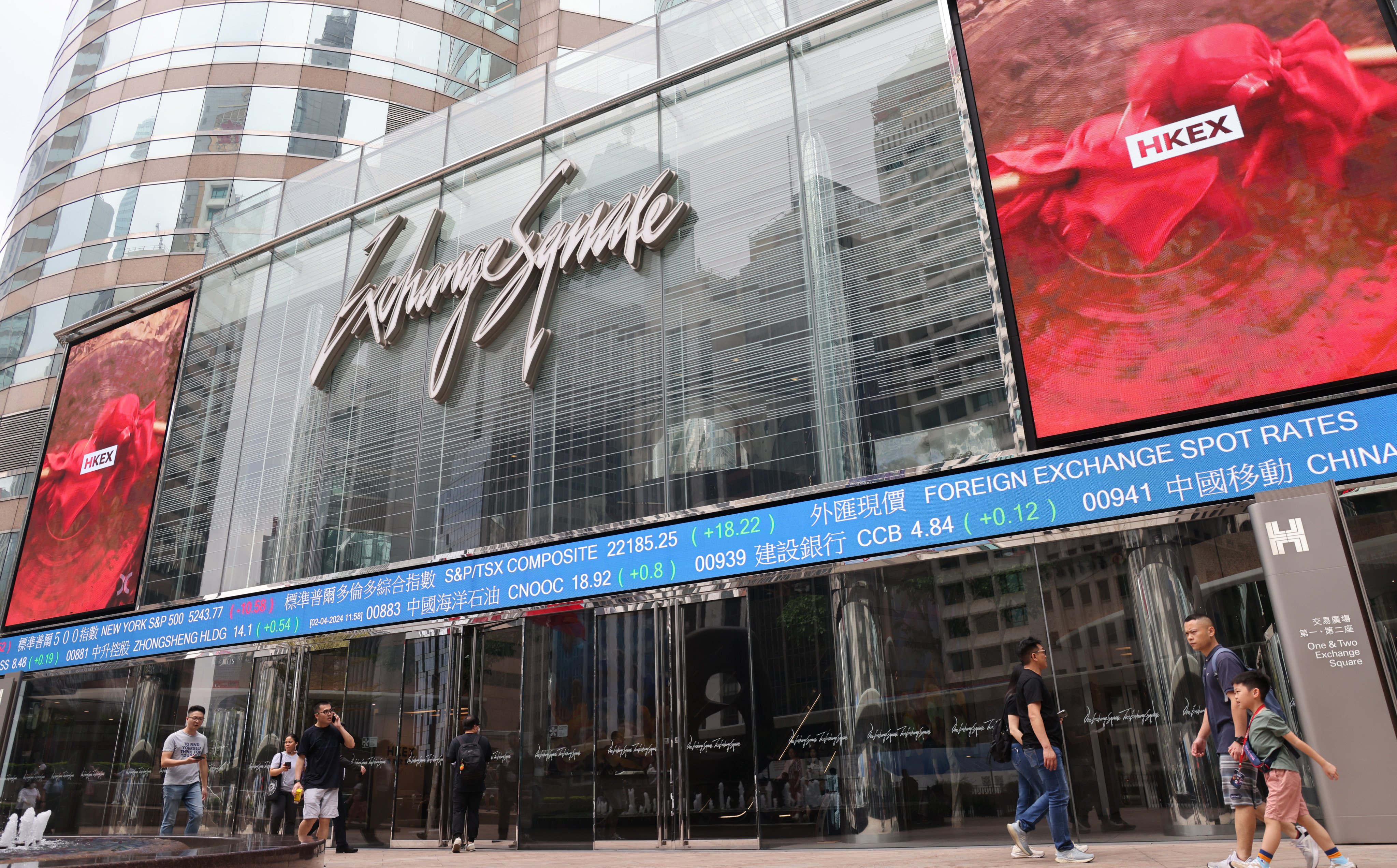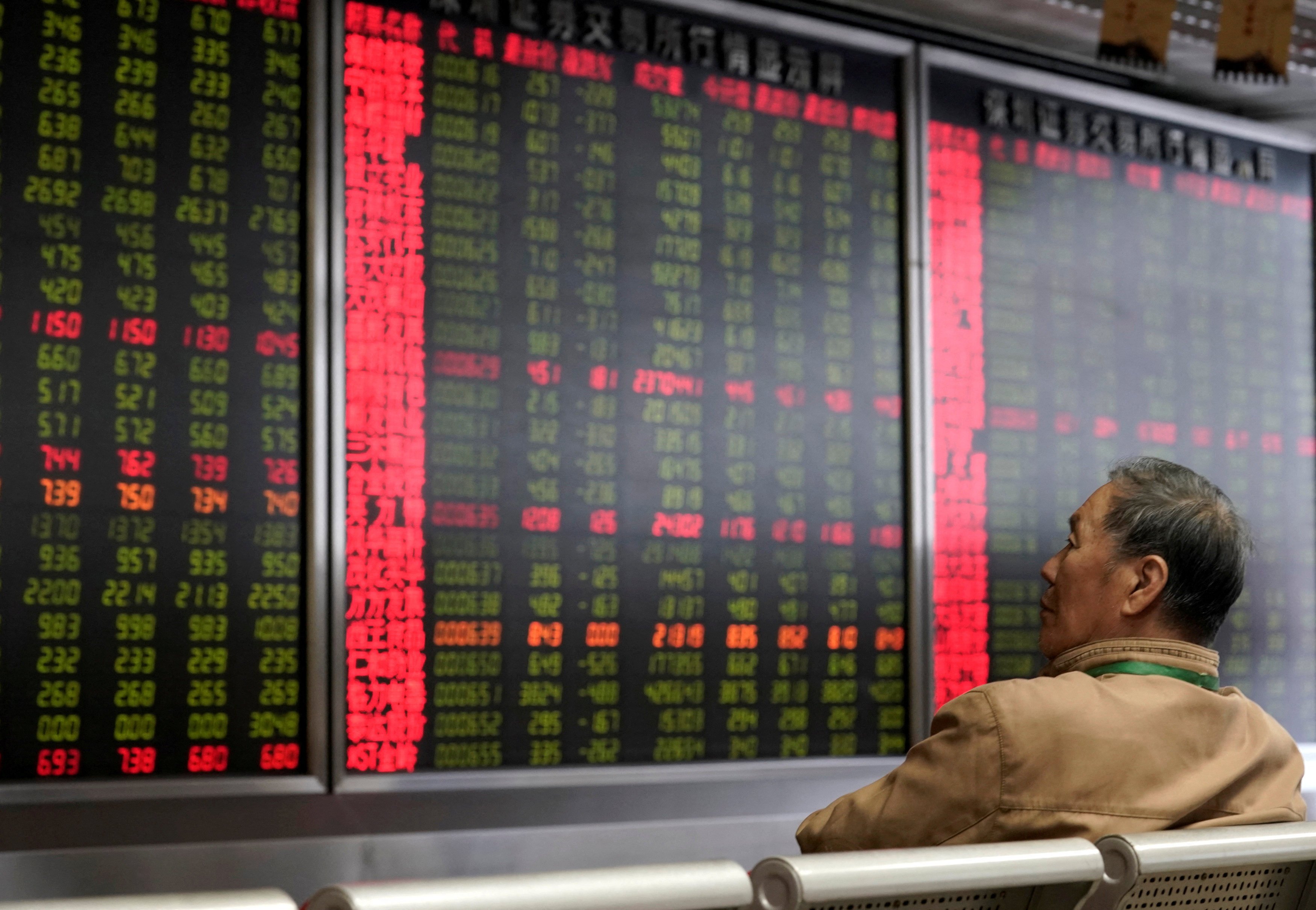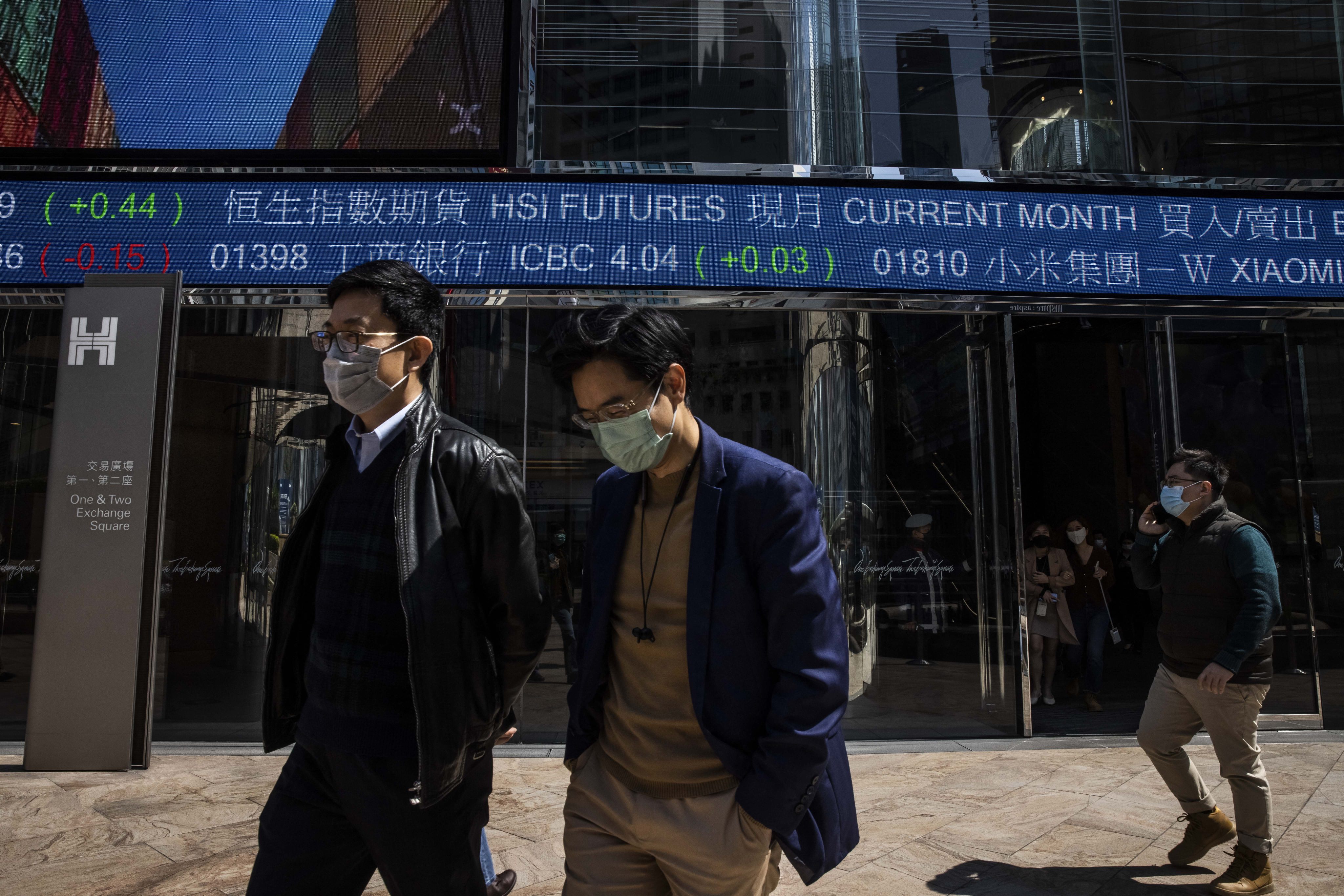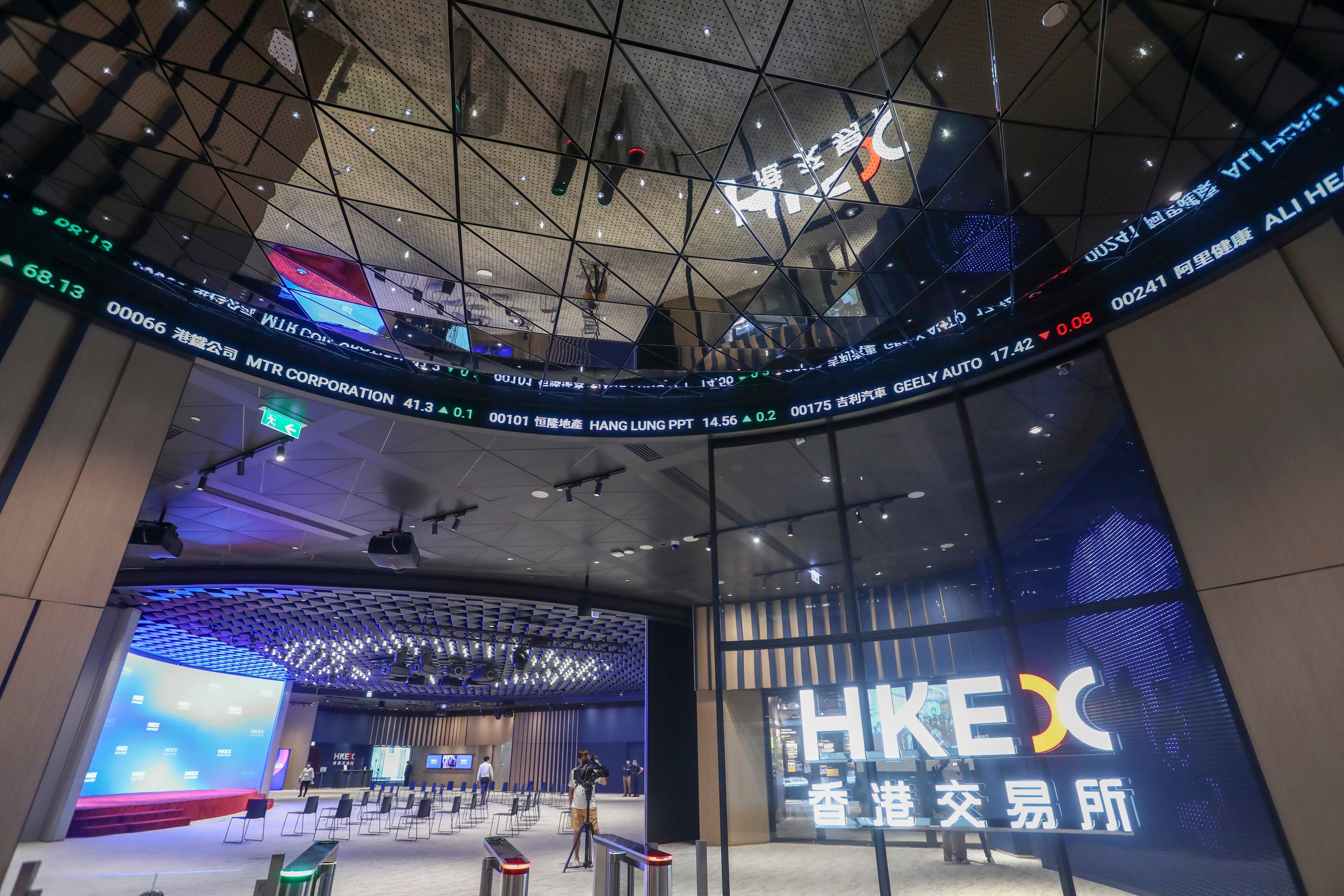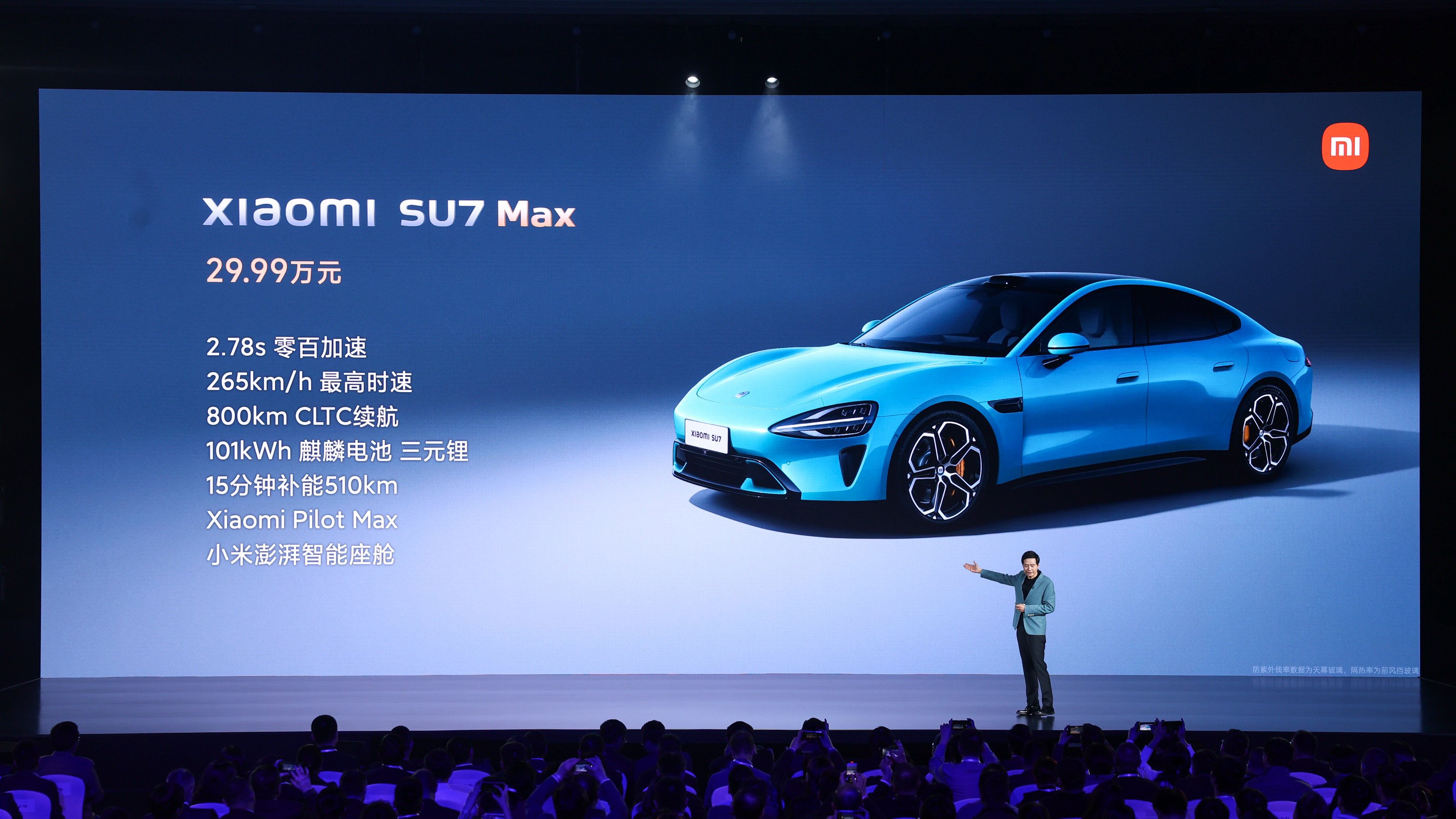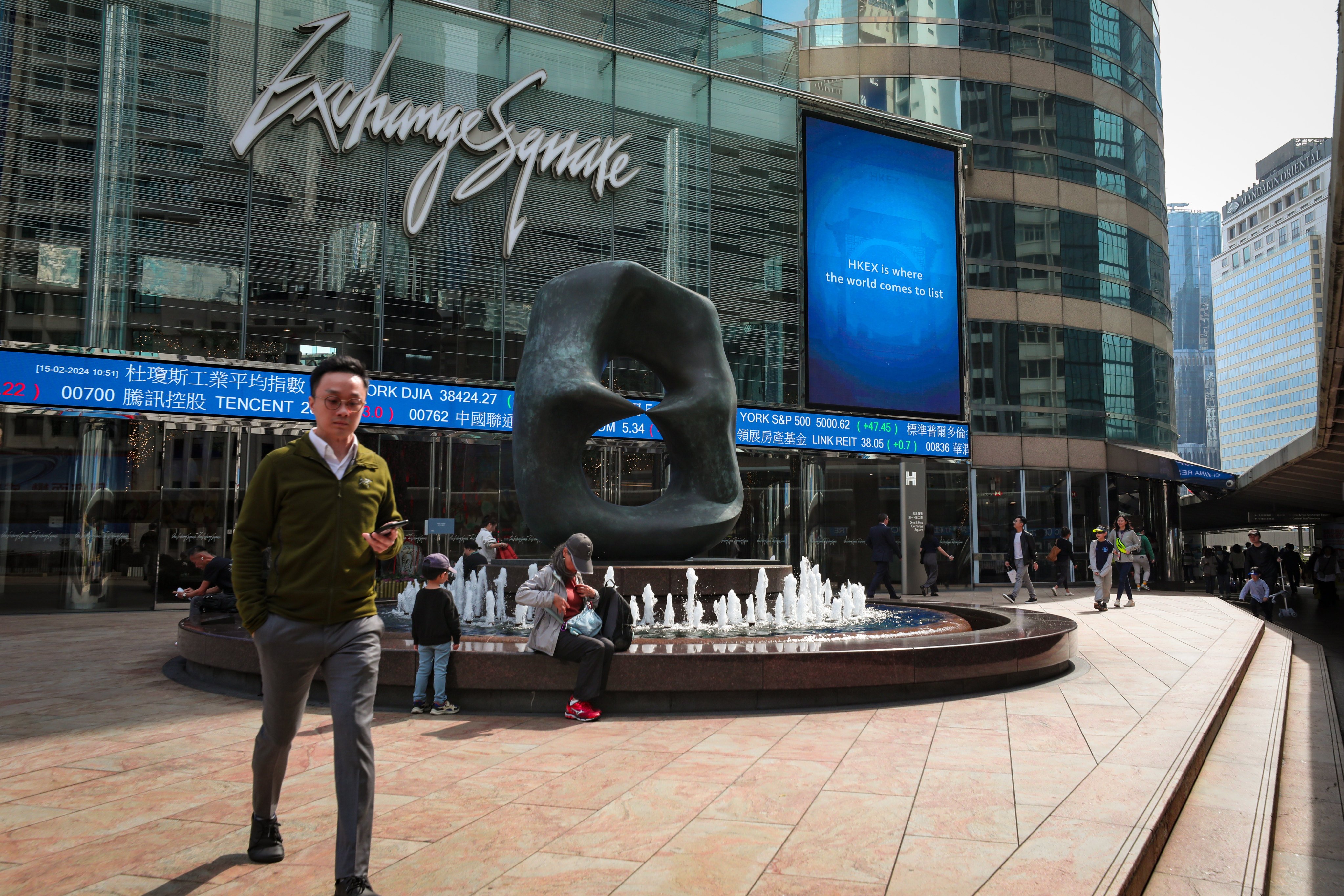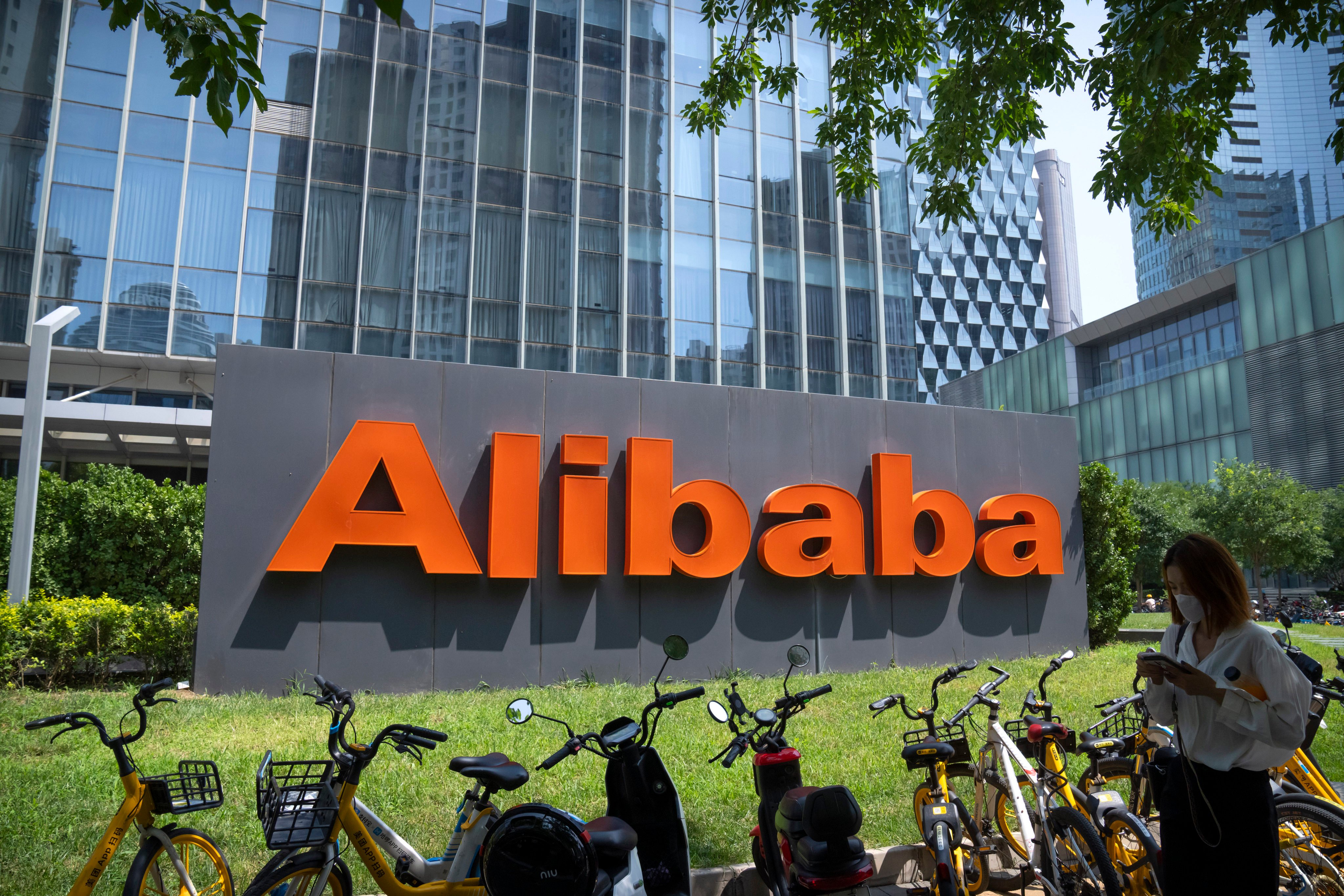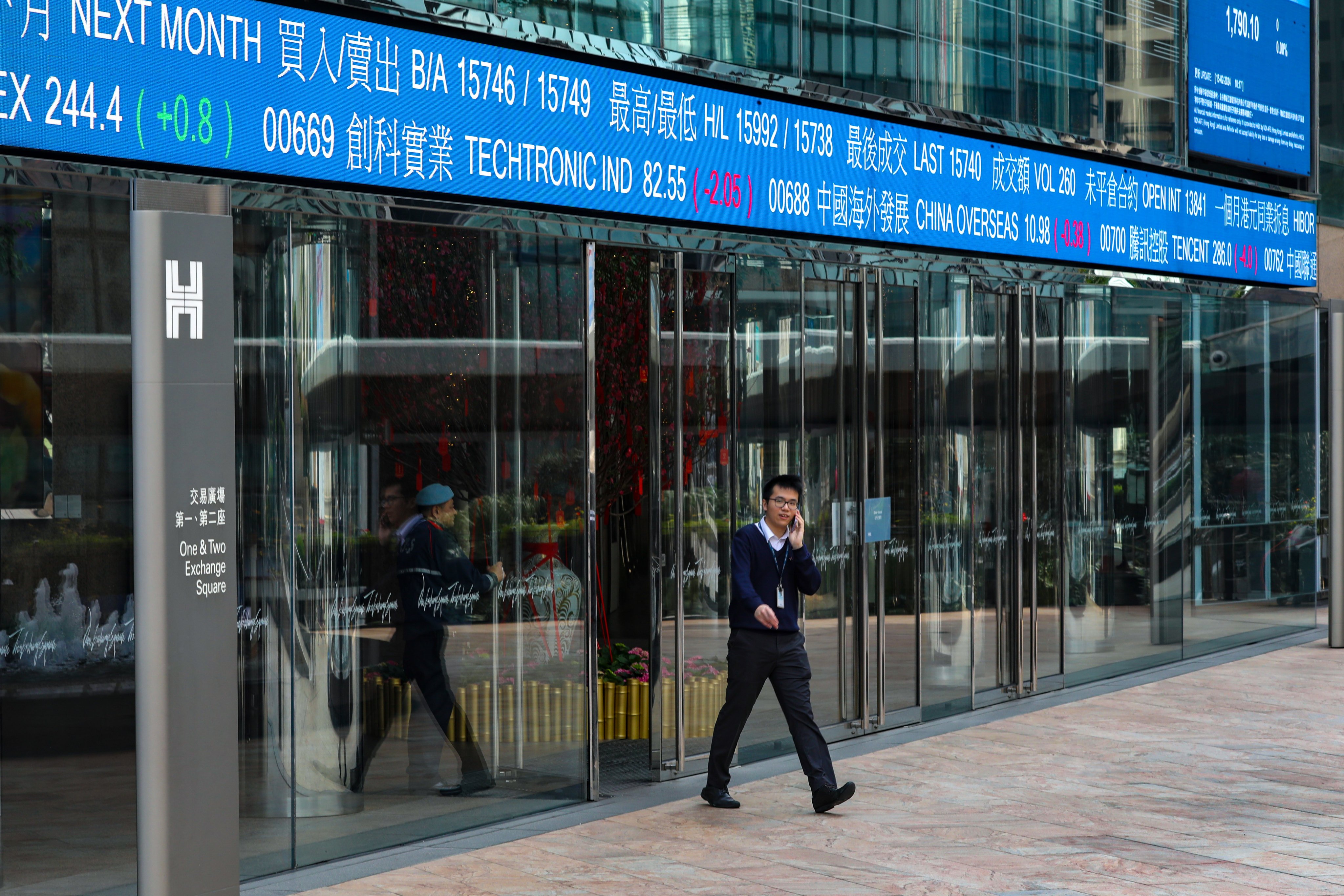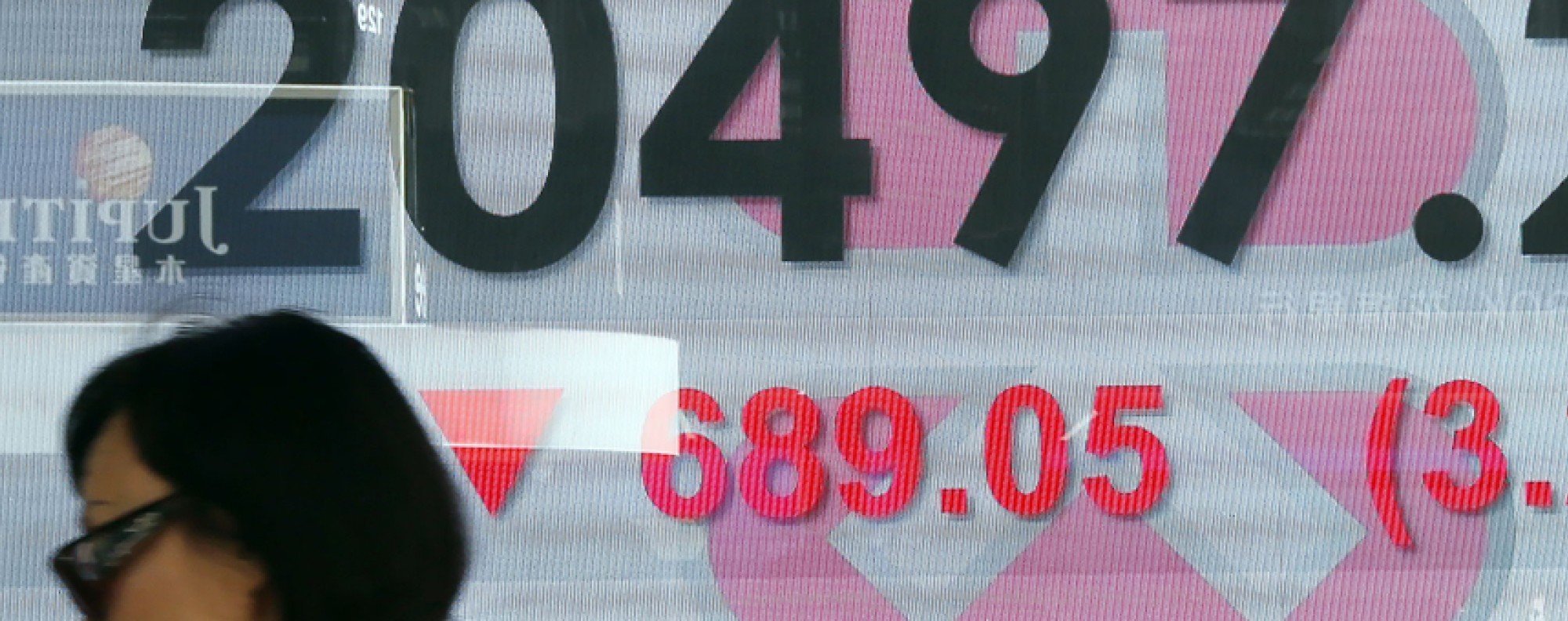
Topic
Established in 1969, the Hang Seng Index is the benchmark stock market index, monitoring changes in 48 constituent blue chip stocks. It is maintained by Hang Seng Indexes Company, a unit of Hang Seng Bank, which is controlled by HSBC Group.
As Beijing halves stamp duty on share deals to lift investor confidence, Hong Kong is seeking greater liquidity to strengthen its position.
- Demand for adding back Chinese assets has been rising amid the rebalancing of global assets, HSBC Jintrust strategist says
- ‘Outlook appears significantly brighter now compared to just a few weeks ago, offering hope for a more robust economic recovery’: SPI Asset Management’s Stephen Innes
Hong Kong’s market is the best performer among major peers globally this month, and better-than-expected manufacturing activity in mainland China is expected to add further impetus.
Hong Kong stocks closed near bull market territory after corporate earnings continued to surprise on the upside with property sector support measures on mainland China adding to the momentum.
Hong Kong stocks rose and completed its best weekly performance since October 2011 as positive earnings from top-tier Chinese companies and supportive policy measures boosted investor confidence
Hong Kong stocks rise on optimism that the appetite for Chinese assets is returning as Beijing pledges support to markets and signs of an earnings recovery emerges.
Hong Kong stocks rose for a third day after earnings optimism drove the benchmark Hang Seng Index to a five-month high.
Hong Kong stocks climbed most in three weeks as investors ramped up their buying on expectations that a slew of supportive measures from the Chinese securities watchdog will aid sentiment.
Hong Kong stocks extended gains amid expectations the latest measures announced by Chinese authorities will broaden the investor base
China Securities Regulatory Commission on Friday announce five measures to further enhance connectivity between mainland and Hong Kong capital markets.
China’s capital market regulators have announced a package of measures to boost liquidity, attract international investors and enhance competitiveness between the mainland and Hong Kong.
Hong Kong stocks gains were driven by insurance, banks and casino stocks with some investors saying conditions are right for a substantial rally in Chinese shares.
Hang Seng Index hovers near a five-week low after comments by Fed chairman Jerome Powell, who said it could take ‘longer than expected’ to get inflation back on target.
Hong Kong stocks eased, pressured by the weak Chinese yuan currency and following trade data that showed a contraction in exports from the world’s second-largest economy.
Hong Kong stocks tumble after data suggested China’s consumption demand remains weak and as investors lowered their bets on the US Federal Reserve cutting rates in June.
Hong Kong stocks rose as a growing number of corporate buy-backs triggered bets that the market is nearing a bottom.
Sentiment has been recovering after a visit to China by US Treasury Secretary Janet Yellen, as traders await March economic data due later this week.
Hong Kong stocks ended steady but the mood was cautious as ahead of economic data releases that will drive sentiment later in the week.
Stocks pare gains in week as traders continue to dial back bets on a rate cut in June amid concerns about sticky US inflation data. Trading shrinks as markets in mainland China are closed for a holiday.
China’s state-directed buying binge has swollen the size of exchange-traded funds (ETFs) tracking the underlying benchmark CSI 300 Index, helping them outperform the market while boosting their asset-size ranking.
Hong Kong stocks retreated after expectations of rate cuts by the US Federal Reserve were dealt a setback by strong jobs and factory orders data in the world’s biggest economy.
Lack of interest has more to do with lacklustre IPO activity than the reform per se, which will draw more interest when listings pick up, analysts say.
Hong Kong stocks jumped by the most in three weeks, with investor sentiment lifted by a manufacturing rebound in the world’s second biggest economy and as Chinese smartphone and gadget maker Xiaomi reported solid orders on its debut in the world’s biggest electric vehicles (EV) market.
Investors should exercise more caution when it comes to the valuations of Chinese stocks, as corporate earnings growth is set to slow because of Beijing’s pursuit of high-quality economic growth, according to China’s biggest money manager.
Chinese state intervention has tentatively put a floor under stocks, but corporate earnings show little sign of providing upwards momentum as pressure is building for investors to pocket profits from the decent gains the market has made.
China’s major stock exchanges are facing a tough start to the year as proceeds from initial public offerings in Hong Kong, Shanghai and Shenzhen shrink. US exchanges are strengthening their lead and ranking.
Hong Kong outperforms the region as President Xi Jinping assures US business leaders about China’s commitment to a market-oriented business environment.
Hong Kong stocks underperformed the region as sentiment was dealt a blow by the cancellation of a Hong Kong IPO by Alibaba Group’s logistic unit and a cautious outlook from electric vehicle maker BYD, with the yuan’s slide adding to the gloom.
Hong Kong stocks closed higher as China Merchants Bank and China Resources Land posted better-than-estimated results and China’s central bank governor struck an upbeat tone about the property market.










